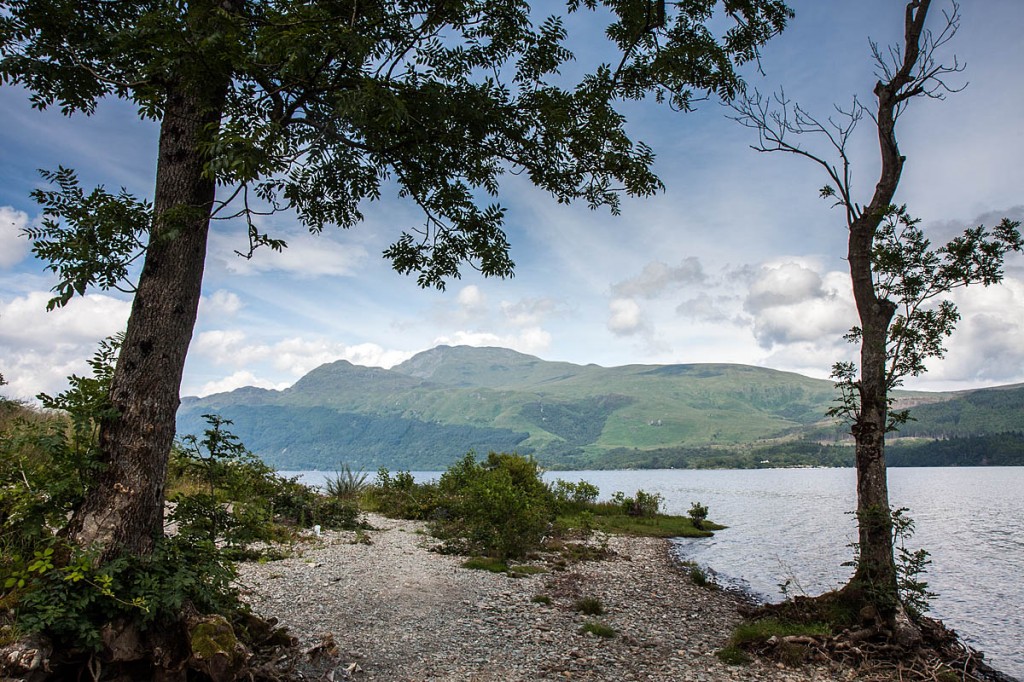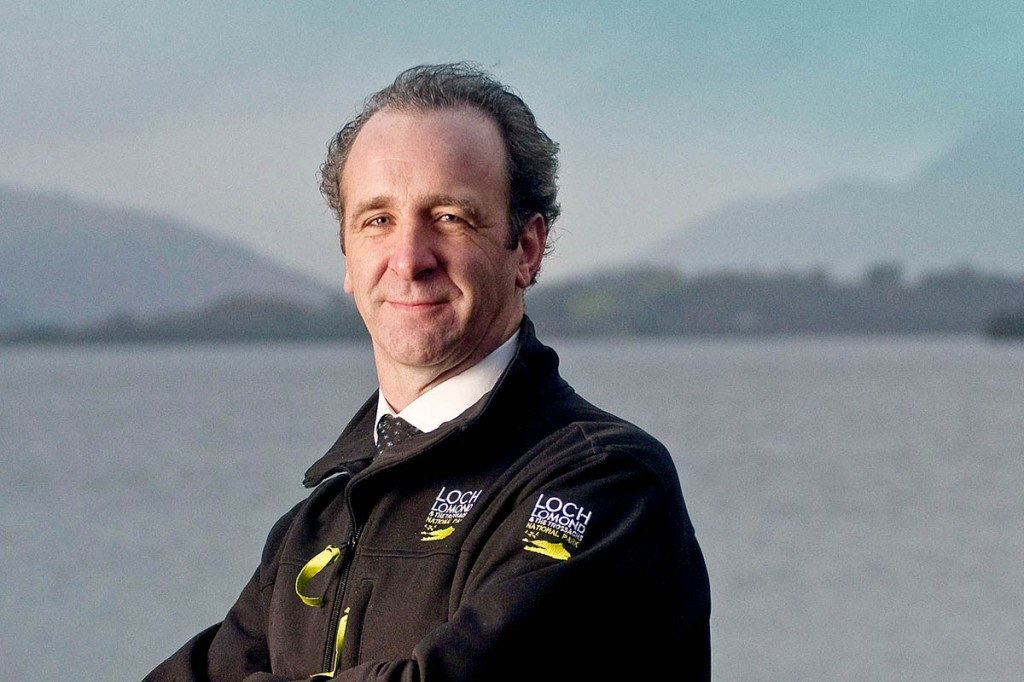The row over a national park’s plans to ban wild camping along many of its loch shores intensified today as two organisations representing walkers, climbers and mountaineers condemned the proposals.
The Mountaineering Council of Scotland called the planned ban ‘disgraceful’ while Ramblers Scotland said it had lost confidence in the Loch Lomond & the Trossachs authority.
A public consultation on proposals to extend the wild camping ban on the eastern shore of Loch Lomond to the opposite bank, along with several other lochside areas, ends at midnight today.
Ramblers Scotland and the Mountaineering Council of Scotland together called for the intervention of the Scottish Government to help resolve the dispute with the park authority.
They say any bylaws would go against the right to camp responsibly, enshrined in Scotland’s right-to-roam legislation.
Helen Todd, campaigns and policy manager with Ramblers Scotland said: “We have lost confidence in the national park’s ability to resolve this dispute over camping bylaws.
“They listen to our concerns but make no effort to adjust their plans to take account of what is being said to them by outdoor organisations and experts. They are taking a much too narrow view of their responsibilities.
“By criminalising camping and other activities which are perfectly acceptable under Scotland’s right to roam legislation, the park authority would create immense public confusion over what is acceptable when taking access to our countryside.
“It is clear from the land reform legislation that secured our public rights of access to land and water that any byelaws introduced by national park authorities and other organisations have to be consistent with the access provisions approved by the Scottish Parliament in 2003.
“The latest proposals from the national park fail that crucial test.
“This dispute is totally unnecessary. As Kevin Findlater has indicated, what we need is the proper application of the criminal law to those who are causing problems and then we can allow everyone else to enjoy the outdoors without fear of getting a criminal record.”
Mr Findlater, who retired as chief inspector covering Loch Lomond in 2013, said in his submission under the consultation that the proposed bylaws are badly crafted and wholly wrong.
He said: “The bylaws themselves are wholly unnecessary, draconian and drive a coach and horses through the right to roam so valued in all of Scotland.
“To make matters worse, despite assurances given to the contrary, the new proposals grossly and unfairly extend the scope and geography of the bylaws in a way that must raise questions as to what are the real motivations.”
Andrea Partridge, access officer with MCofS said: “It is truly disgraceful that Scotland’s first national park, with a primary purpose to promote public enjoyment of the countryside, is now proposing to remove a right to camp for the responsible majority.
“A right that was enshrined in law is being eroded by the very organisation that should be promoting and encouraging responsible access.
“Since November we have made repeated requests to obtain data from the park authority which they claimed as evidence to support the introduction of the new bylaws. This included statistics on the number of reported incidents, number of warnings, number of fines, prosecutions etc in the area where the bylaws are proposed.
“We have not received this information and wonder whether it actually exists.
“The proposed bylaws totally undermine the workings of the Land Reform (Scotland) Act 2003 and will criminalise law-abiding members of the public.
“The climber who sleeps in his or her car or bivvies beside it in order to get an early start; the cycle tourer who needs to stop for the night; or the walker who gets delayed or has simply had enough that day, all currently have the right to camp responsibly under the terms of the Land Reform (Scotland) Act 2003.
“Scotland’s first national park will be removing these rights from everyone in order to provide a deterrent to the few who are carrying out criminal acts.
“We acknowledge there is a problem with damage and overuse at certain key locations at busy times of the year, but there has been inadequate provision of camping and associated facilities by the park authority to help address this problem.”
Loch Lomond & the Trossachs National Park Authority chief executive Gordon Watson said: “The National Park (Scotland) Act 2000 gives us bylaw-making powers for a reason: we are expected to protect the environment from damaging overuse and abuse.
“The package of measures we are proposing combines investing in more informal low cost camping facilities, continuing education initiatives as well as introducing controls on the amount of camping.”
Ramblers Scotland and the Mountaineering Council of Scotland are now calling on the Scottish Government to help resolve the dispute by getting all parties around the table to determine what is best for the national park.
Both organisations said that while they are opposed to the bylaws they nevertheless welcome proposals by the park to increase investment in informal camping provisions and associated educational and interpretive facilities, building on the progress they have made on the east shore of Loch Lomond in recent years.
Writer, broadcaster and outdoors commentator Cameron McNeish has also called for a national debate on the plans.
Views can be expressed up to midnight today at the Your Park website.


keith ratcliffe
12 January 2015Is that picture right for the caption? I think this is Kevin Findlater.
keith ratcliffe
12 January 2015Sorry I was wrong - this picture was incorrectly captioned elsewhere.
Marion Boyle
12 January 2015Why not do what many other countries do and ban camping within a certain distance of a road? Not a problem for wild campers, as camping beside a road does not come within any reasonable person's definition of wild camping, but it will help to discourage the yobs and slobs who leave such a mess behind them, just so long as the ban is enforced.
Alastair McIntosh
13 January 2015I am involved in an organisation in Govan that takes young folks out to Loch Lomond, and we've seen then moved to tears on seeing it for the first time. A camping ban would only penalise those without cars to go further afield. It would start to erode our preciously-won right to roam and to inhabit our own country. It would be a blow not for freedom and responsibility, but for privilege. Yes, there people who abuse that freedom, but that needs to be dealt with by raising a sense of pride in place and in the meantime, accepting the need for clean-ups from time to time. As a regular user of the loch (canoeing, and walking on the islands), a much greater problem than mess and disturbance from campers is the jet skiers and pilots and private aircraft, especially those that do their acrobatics over the loch. Of course, to take on that lot would require a battle at a different socio-economic level of class. Be glad that people want to come out of Glasgow and camp around their loch. Help to awaken them to reverence for the bonny bonny banks. Please don't cut them out.